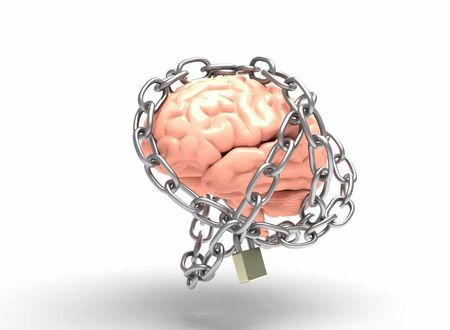Thinking: The Greatest Compulsion
—
Out of the 24 hours in a day, leaving aside the 7-8 hours that we sleep, we are awake 17-16 hours a day. From the moment we wake up, till the moment we fall asleep, nearly every second of it we are flooded with thoughts, like a constant traffic. Isn’t this our state? 17 hours equals 61,200 seconds, and guess what, over the course of a day, we have 60,000 thoughts. Which means…that almost every second there is a thought! All our waking hours are spent in thoughts. And that’s why even in sleep we are full of thoughts—in the form of dreams. It’s only natural, no? All day we are practicing thinking, so it’s only obvious that the brain will continue doing so in sleep, because it’s the brain’s habit. Day in and day out the brain has practised this…so the brain is conditioned now. So, naturally, the functions of the brain are also a product of habit.
So, thinking has become the greatest compulsion in us. So much so that it has become an automatic process, quite out of our control. We fail to stop this break-failed train of thoughts at will. This is one of the greatest struggles of every human being.
Now, the problem is, because we’ve become so much habituated with this compulsion, we think it’s normal, that there’s no problem in it. But, to remain always in the current of thoughts is an unnatural state, if truth be told. But, we’ve grown accustomed to this unnatural state. But, just reflect a bit…
Every night the greatest relaxation happens to you when all of your mind becomes still, there’s no shadow of any thought; that’s when the deepest sleep happens, and the brain gets rejuvenated. And if thoughts linger subconsciously, we fail to enter the deeper states of sleep—which is nothing but deeper levels of relaxation actually—and in the morning, we feel dizzy. As long as there are thoughts, deeper relaxation can’t happen. That’s why we love to sleep so much!
If at least 50% of the time we can remain thoughtless, the nature of our psyche will fundamentally change. The mind will become a conscious process. And all our actions and behaviour will reflect an increased level of stability. And with the stability of the mind comes peace. Wouldn’t it be great if that happens?
So, what to do? Can you remain thoughtless 24 hours? No. Thoughts are necessary. They have their own place. We need thought to do various activities in the world—to study, to learn, to recall something, to make decisions and so on. But thinking all the time is a disease. And this compulsive thinking is the source of all other mental maladies. Our anxieties, fears, worries—all are products of wrong and compulsive thinking. How many problems would be solved if we correct just this one thing!
Lao Tzu, one of the greatest Chinese philosophers, said:
“Stop thinking, and end your problems.”
So, how to do that? Mindfulness, meditation, mouna (the practice of silence), taking care of what we see and hear—all of them help. Try to be silent for a whole day; cut yourself off from all engagements and social media for a week; or, meditate. These are some practices you can do. I practice silence personally. It helps. Also I sit to meditate every now and then. And I’m going to take a sabbatical from social media for a week. It will be an exciting experiment.
With this I end this piece. Be conscious. That’s all.
—









Comments & Discussion
25 COMMENTS
Please login to read members' comments and participate in the discussion.